As we have no temple to go to, and as there is no current Priesthood here on earth, the best way we can keep His appointed times is by practising them as best we can, after all, we are here to practise the behaviour of Jesus (Yeshua) as followers of The Way (Sons of Light). By keeping His calendar you will find it easier to understand His heart for us.
My sheep hear my voice, and I know them, and they follow me: John 10:27
These are the times of our heavenly blessings:
Head of the Year – Head of the Season of Heat
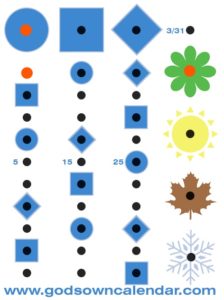
And on the new moon (Rosh Chodesh -first day of the season) of the first month, and on the new moon of the fourth month, and on the new moon of the seventh month, and on the new moon of the tenth month are the days of remembrance, and the days of the seasons in the four divisions of the year. These are written and ordained as a testimony for ever. Jub 6:23
Day 1 Month 1 – Head of the Year
It’s time to blow your shofar and celebrate the beginning of a new year with all the blessing that are to come. The days will start to become lighter as the sun takes dominance over the night. We treat this new years day as a day of rest, (although not officially a Sabbath) we eat and drink, sing praises and listen to worship songs.
We start the day by going to the countryside where we watch the sun rise in the east and we blow our trumpets/shofar at the sun. Its a fun day spent with the family as we are all looking forward to the coming year. We have been known to picnic in the countryside all day!
Passover
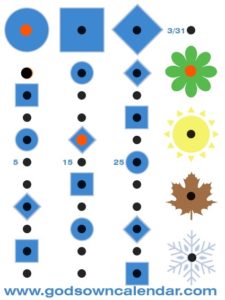
In the fourteenth day of the first month at even is the LORD’S passover. Lev 23:5
Day 14 Month 1 – Passover
We begin Passover when the sun goes down at sunset on the evening of the 14th. We lay a mat down on the floor and have cushions scattered about. We eat picnic style and have lots of bowls filled with various foods. On the stairs we an overnight bag packed so we are ready to leave the house at any moment if we are needed to (as we are asked to watch on this evening – will our Messiah will return at this time?). Our children especially like this occasion as they can stay up a little later than usual. We eat our picnic with unleavened bread as this day is also an intro into the celebration of unleavened bread. No food is left out and is thrown away before the morning comes.
Unleavened Bread
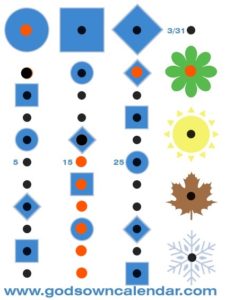
In the first month, on the fourteenth day of the month at even, ye shall eat unleavened bread, until the one and twentieth day of the month at even. Exo 12:18
Six days thou shalt eat unleavened bread: and on the seventh day shall be a solemn assembly to the LORD thy God: thou shalt do no work therein. Deut 16:8
Day 15 – Day 21, Month 1 – Feast of Unleavened Bread
As mentioned, during Passover we eat unleavened bread which spills into the next seven days and we treat this first day (15th) as a normal Sabbath. These seven days are spent remembering our behaviour from the previous year and considering the ways that we have become worldly. The objective is to remove those prideful areas and humble ourselves in order to keep ourselves simple and grateful for all the wonderful experiences and blessing we have received which, of course, only God has allowed to happen. We eat bread made from flour and water with our meals for this week. No yeast or raising agent is used making our bread as we believe this is symbolic of pride – puffing itself up over time.
Unleavened Bread starts with a Sabbath on 15th of the first month and finishes with a Sabbath on 21st.
Barley First Fruits
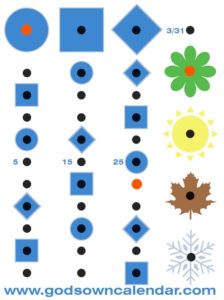
You must take some of the first of all the land’s produce that you harvest from the land’s produce that you harvest from the land YHWH your God is giving you and put it in a container. Then go to the place where the LORD your God chooses to have His name dwell. Deut 26:2
Day 26 Month 1 – First Fruits of Barley
A time to wave a sheaf of barley to the skies knowing that our crops will be blessed in the coming year. This is also the first day of the 50 day count to the next first fruits celebration. We treat this as a Sabbath day, eating, drinking and worshiping our everlasting Father in the heavens.
NB. All first fruits celebrations are separated by a count of 7 sabbaths and a day (50), commonly referred to as counting the omer.
The Second Passover
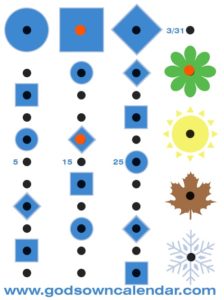
The king and his officials and the whole assembly in Jerusalem decided to celebrate the Passover in the second month. 2Ch 30:2
Day 14 Month 2 – 2nd Passover
If for any reason you missed the first Passover, now is the time to celebrate it. Treat this day as you would the Passover in the previous month and continue with the celebration of unleaven bread for seven days after this.
Our creator is so thoughtful when planning His feasts and celebrations, He even plans for those who missed the first!
Shavuot and Wheat First Fruits
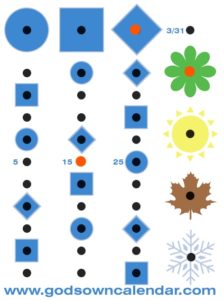
First And in the fifth year of the fourth week of this jubilee, in the third month, in the middle of the month (the 15th) Abram celebrated the Feast of the Firstfruits of the grain harvest. And he offered new offerings on the altar, the firstfruits of the produce, unto the Lord, an heifer and a goat and a sheep on the altar as a burnt sacrifice unto the Lord; their fruit offerings and their drink offerings he offered upon the altar with frankincense. Jub 15:1-2
When the day of Pentecost came, they were all together in one place. Suddenly a sound like the blowing of a violent wind came from heaven and filled the whole house where they were sitting. Acts 2:1-2
And on that day we made a covenant with Abram, according as we had covenanted with Noah in this month; and Abram renewed the festival and ordinance for himself for ever. Jub 14:20
And Israel rose up from the Well of the Oath on the sixteenth of this third month, and he went to the land of Egypt Jub 44:8
Day 15 Month 3 – Shavuot
Probably one of the most popular days known. This is Pentecost in your Bible. For us, Shavuot is representative of renewing our covenant with Our Creator. It is a Sabbath day with a difference as it celebrates two feasts. The first being first fruits of wheat (again a wave offering) and also a renewing of our commandments. We like to make two loaves bread and then wave these and hold them together (symbolic of the two houses of Israel coming together). We also affirm our faith by discussing among ourselves how important and beautiful it is to keep His commandments. It’s a Sabbath day and as such we are commanded to be happy, plus we firmly believe this to be a day of tremendous blessings.
Head of the Summer
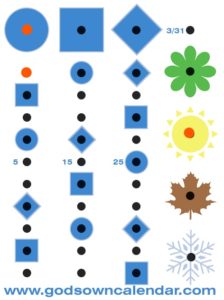
And on the new moon of the first month, and on the new moon (Rosh Chodesh -first day of the season) of the fourth month, and on the new moon of the seventh month, and on the new moon of the tenth month are the days of remembrance, and the days of the seasons in the four divisions of the year. These are written and ordained as a testimony for ever. Jub 6:23
Day 1 Month 4 – Head of Summer
This is another Shofar blowing Shabbath day for us. We are in the middle of the season of heat and our garden vegetables are really taking hold. The sun stays high for another 30 days and we picnic in our garden. Praise Yah for His wonderful promise of abundance that is happening before our eyes.
Wine First Fruits
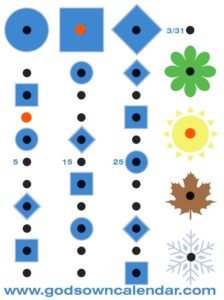
All the best of the oil, and all the best of the wine, and of the wheat, the firstfruits of them which they shall offer unto the LORD, them have I given thee. And whatsoever is first ripe in the land, which they shall bring unto the LORD, shall be thine; every one that is clean in thine house shall eat of it. Num 18:12-13
Day 3 Month 5 First Fruits of Wine
As we have no vineyard, we buy grapes and wine and consume these on this Sabbath Day. Wine is symbolic of doctrine and also of obedience. We discuss the new things we have learned since the start of the new year and how amazing that it is that there seems to be a never ending source of new things to learn and ways in which to apply these to our own lives. Its a wonderful Sabbath Day in the sun.
Oil First Fruits
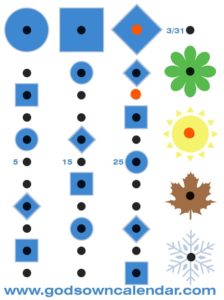
All the best of the oil, and all the best of the wine, and of the wheat, the firstfruits of them which they shall offer unto the LORD, them have I given thee. And whatsoever is first ripe in the land, which they shall bring unto the LORD, shall be thine; every one that is clean in thine house shall eat of it. Num 18:12-13
Day 22 Month 6 – Feast of New Oil
Knowing the feast days but not knowing how to celebrate some of them applies to this feast day. Oil from olives and would be offered to the temple to keep the lamps burning. We buy olives, bread and olive oil. We dip the bread into the olive oil and eat with the olives. We know in times past feasts days were for offering the best ten percent of our crops to the temple in order to keep the it running. Oil was used to keep the lamp-stands burning.
Trumpets – Head of the Season of Cold
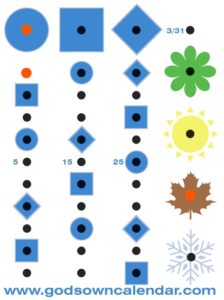
And on the new moon of the first month, and on the new moon of the fourth month, and on the new moon (Rosh Chodesh -first day of the season) of the seventh month, and on the new moon of the tenth month are the days of remembrance, and the days of the seasons in the four divisions of the year. These are written and ordained as a testimony for ever. Jub 6:23
Speak unto the children of Israel, saying, In the seventh month, in the first day of the month, shall ye have a sabbath, a memorial of blowing of trumpets, an holy convocation. Lev 23:24
Day 1 Month 7 – Head of the Season of Cold – Trumpets
A very noisy day with trumpet blowing and shouting. For fun we write down all the names of God (Yahua) and Jesus (Yahusha/Yeshua) that we know on slips of paper and put them into a jar. These are then shaken and we pull out a name at a time. We read it, then blow on our trumpets/shofar and shout out the name we have just read as loud as we can. Then we shake the jar for the next name. Our children really love a chance to shout out aloud to the heavens above. On a serious note, we believe that angelic Trumpets one day will blow from heaven, signalling the last three and half years (42 months) until our Saviours return with His Kingdom, our heavenly home forever!
Day of Atonement
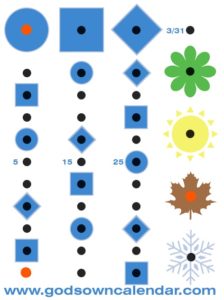
And this shall be a statute for ever unto you: that in the seventh month, on the tenth day of the month, ye shall afflict your souls, and do no work at all, whether it be one of your own country, or a stranger that sojourneth among you: Lev 16:29
Day 10 Month 7 – Day of Atonement
The day of afflicting one’s soul. Let us never forget the suffering our Messiah went through with his obedience to His father. He was betrayed, mocked, spat on, punched, whipped, unlawfully tried and murdered, being hung on a tree until death. He did this in order to do His Fathers will. He could have called a legion of angels to help out, he could have ran away from his responsibility, but Jesus(Yeshua) loved His Father, and mankind, so much that he suffered in order to offer those that love Him an inheritance of everlasting life in the hope of filling up His Kingdom to come (New Jerusalem) with an abundance of resurrected souls.
A day of humbling ourselves in prayer before our Creator and His only begotten Son. One thing to note here is that we MUST appear clean on this day, so we keep ourselves from being defiled the evening before.
Feast of Tabernacles and 8th Day
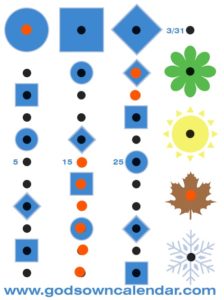
Speak unto the children of Israel, saying, The fifteenth day of this seventh month shall be the feast of tabernacles for seven days unto the LORD. Lev 23:34
Also in the fifteenth day of the seventh month, when ye have gathered in the fruit of the land, ye shall keep a feast unto the LORD seven days: on the first day shall be a sabbath, and on the eighth day shall be a sabbath. Lev 23:39
Day 15-22 Month 7 – Sukkot & Eighth Day
The feast that we enjoy the most. We go camping or rent a caravan and live off grid (where we can) not relying on the world for the whole eight days. This celebration is a picture of us being in the New Kingdom, the New Jerusalem, Zion, the transformed Garden of Eden, receiving our everlasting inheritance, the land of milk and honey. The barren woman is barren no longer and is filled to the full with her children – us – with a High Priest and King (Jesus/Yeshua) ruling over us. Just so much to be happy about. Around us will be the nations and we will be living with the light of the world – literally! We wave tree branches to the north, east, west and south praying for the world/nations about us. We make lights, candle lanterns as we will be the light to the nations. And this would have not been possible by man alone. Our inheritance, our chance of everlasting life is only ever possible because God’s only son left his domain and heavenly riches, to live with us a sinless life, to be our example, to instruct us how to keep the commandments properly in order that we do not miss out on that great day!
Seven days for Sukkot followed by the Eighth Day of Assembly – a picture of our eternal happiness.
Head of the Winter
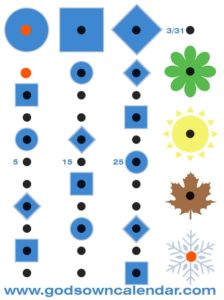
And on the new moon of the first month, and on the new moon of the fourth month, and on the new moon of the seventh month, and on the new moon (Rosh Chodesh -first day of the season) of the tenth month are the days of remembrance, and the days of the seasons in the four divisions of the year. These are written and ordained as a testimony for ever. Jub 6:23
Day 1 Month 10 – Head of Winter
The last celebration of the year and yes we blow the Shofar! We treat this day as a Sabbath day and we look forward to the end of the cold weather.
“If you love Me, keep My commandments.” John 14:15
Notes for First fruits :
You must take some of the first of all the land’s produce that you harvest from the land’s produce that you harvest from the land YHWH your God is giving you and put it in a container. Then go to the place where the LORD your God chooses to have His name dwell. Deut 26:2
The Feasts of First Fruits, are offerings of the first produce of the harvest. These offerings can include, animals for meat consumption (cattle, goats, sheep), cereals and vegetables (fruit, grains, seeds), liquids (wine, oil), or spices (frankincense). Every 50 days, we are required to bring our very best tenth of our produce as an offering to the temple. This acts as a means of support for the temple priests, who then in turn help to feed the widows and orphans. The offerings, once offered at the temple, become Holy (set apart) and are used accordingly.
.